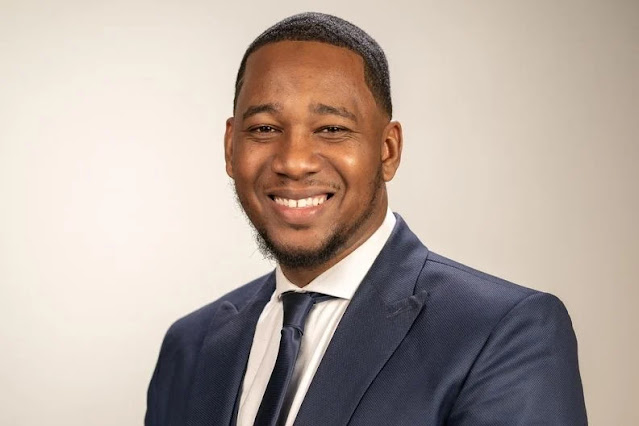Activist Art McKoy's Case To Be Heard By Ohio Eighth District Court Of Appeals In Courtroom Two At 9 AM on Wednesday February 3
Cuyahoga County Prosecutor Bill Mason 
Community Activist Art McKoy
Posted Monday, February 1, 2010
(Cleveland, Ohio Area News)
By Kathy Wray Coleman
Editor of The Determiner Weekly.Com and
The Kathy Wray Coleman Online News Blog and Media Network
County Prosecutor Bill Mason's legal team and the legal beagles for Community Activist Art McKoy will give oral arguments before a three-judge panel of the Ohio Eighth District Court of Appeals on Wednesday, Feb 3 at 9 am in courtroom two. At issue is whether prosecutors must give McKoy's attorneys, Rufus Sims and James Hardiman, the name of an alleged confidential informant against him in a pending drug case via discovery and in time to effectively prepare for trial, or whether the name can be withheld until seven days or less before the trial, which has been rescheduled due to the appeal. Discovery is the exchange of material between the parties within a reasonable and specified time before trial that is designated by the trial court judge.
The closely watched case sets the stage for a showdown with Mason's office and members of Cleveland's Black community since prosecutors claim that timely handing over the name of the witness before trial as typically required via discovery is not applicable because of the stance that the informant is subject to harm simply by virtue of the alleged crime itself, or by unintended standards, the color of the skin of the person accused of it. The amended rule of open discovery for Cuyahoga County, which took effect in February 2009, requires exposure of the witness via discovery before trial absent a clear finding of potential harm or compromise to the criminal investigation and before that case law or law making judicial decisions required the same regarding this aspect of the discovery process.
“This is larger than Art McKoy,” said Ernest Smith, 34, leader of the grassroots organization dubbed the Oppressed People's Nation,” which is holding a press conference with other grassroots factions a half hour before oral arguments on the steps of the Ohio Eighth District Court of Appeals. “Black men should not be denied discovery and accused of harming a potential witness just because of being charged with a crime.”
McKoy has a powerful legal team in the veterans Sims, also an attorney of suspected serial killer Anthony Sowell, and Hardiman, who was the lead attorney representing Black children and their families in the case of Reed v Rhodes, the celebrated desegregation court case that brought cross-town busing to Cleveland's public school district in the late 70s, though the desegregation court order that resulted from the case was lifted in 1998 when the state law that gave control of the city schools to the city's mayor took effect.
Prosecutors say that the so-called informant can nail the case against the community activist who has pleaded not guilty to the charge of allegedly knowing that drugs were being sold out of his now defunct “Superfly Barbershop” in East Cleveland, Oh. while supporters of McKoy have said the alleged informant does not exist and that prosecutors are either buying time or strategically operating in hopes of crafting one, an assessment that remains possibly to be seen. Though accused of knowing what allegedly went on, a fifth degree felony that carries up to a year in prison if applicable, McKoy has not been charged with drug dealing in itself and those accused of it have also pleaded not guilty.
Cuyahoga County Common Pleas Judge Nancy Margaret Russo, known for sometimes rocking the boat, and taking Mason's office to task, sided with the McKoy camp and ordered prosecutors for the county's top prosecutor to give up the alleged informant immediately. In turn, team Mason filed an appeal, one that, according to routine, could be decided some three to six weeks after Wednesday's oral arguments before county appellate judges Larry Jones, who is Black, Colleen Conway Cooney and Mary Eileen Kilbane.
“A defendant is denied a fair trial when the identify of the witness is not divulged by the State,” Hardiman wrote in a brief filed on McKoy's behalf relative to the appeal. He said also in the brief that prosecutors did not mention the issue in pretrial hearings and only raised it in the twilight hour as trial initially loomed.
Mason said in an appellate brief filed on behalf of the State of Ohio that Russo abused her discretion when she ordered that the alleged confidential informant be immediately named and that in doing so she placed the slated witness for the prosecution and his or family in harms way, though Hardiman 's brief says that nothing substantiates the allegations.
“The record in this matter shows that the State has certified that the safety of this witness, and others, is in jeopardy if the State is required to reveal the name of its testifying-informant,” the appellate brief filed by Mason's office denotes in relevant part.

Community Activist Art McKoy

Posted Monday, February 1, 2010
(Cleveland, Ohio Area News)
By Kathy Wray Coleman
Editor of The Determiner Weekly.Com and
The Kathy Wray Coleman Online News Blog and Media Network
County Prosecutor Bill Mason's legal team and the legal beagles for Community Activist Art McKoy will give oral arguments before a three-judge panel of the Ohio Eighth District Court of Appeals on Wednesday, Feb 3 at 9 am in courtroom two. At issue is whether prosecutors must give McKoy's attorneys, Rufus Sims and James Hardiman, the name of an alleged confidential informant against him in a pending drug case via discovery and in time to effectively prepare for trial, or whether the name can be withheld until seven days or less before the trial, which has been rescheduled due to the appeal. Discovery is the exchange of material between the parties within a reasonable and specified time before trial that is designated by the trial court judge.
The closely watched case sets the stage for a showdown with Mason's office and members of Cleveland's Black community since prosecutors claim that timely handing over the name of the witness before trial as typically required via discovery is not applicable because of the stance that the informant is subject to harm simply by virtue of the alleged crime itself, or by unintended standards, the color of the skin of the person accused of it. The amended rule of open discovery for Cuyahoga County, which took effect in February 2009, requires exposure of the witness via discovery before trial absent a clear finding of potential harm or compromise to the criminal investigation and before that case law or law making judicial decisions required the same regarding this aspect of the discovery process.
“This is larger than Art McKoy,” said Ernest Smith, 34, leader of the grassroots organization dubbed the Oppressed People's Nation,” which is holding a press conference with other grassroots factions a half hour before oral arguments on the steps of the Ohio Eighth District Court of Appeals. “Black men should not be denied discovery and accused of harming a potential witness just because of being charged with a crime.”
McKoy has a powerful legal team in the veterans Sims, also an attorney of suspected serial killer Anthony Sowell, and Hardiman, who was the lead attorney representing Black children and their families in the case of Reed v Rhodes, the celebrated desegregation court case that brought cross-town busing to Cleveland's public school district in the late 70s, though the desegregation court order that resulted from the case was lifted in 1998 when the state law that gave control of the city schools to the city's mayor took effect.
Prosecutors say that the so-called informant can nail the case against the community activist who has pleaded not guilty to the charge of allegedly knowing that drugs were being sold out of his now defunct “Superfly Barbershop” in East Cleveland, Oh. while supporters of McKoy have said the alleged informant does not exist and that prosecutors are either buying time or strategically operating in hopes of crafting one, an assessment that remains possibly to be seen. Though accused of knowing what allegedly went on, a fifth degree felony that carries up to a year in prison if applicable, McKoy has not been charged with drug dealing in itself and those accused of it have also pleaded not guilty.
Cuyahoga County Common Pleas Judge Nancy Margaret Russo, known for sometimes rocking the boat, and taking Mason's office to task, sided with the McKoy camp and ordered prosecutors for the county's top prosecutor to give up the alleged informant immediately. In turn, team Mason filed an appeal, one that, according to routine, could be decided some three to six weeks after Wednesday's oral arguments before county appellate judges Larry Jones, who is Black, Colleen Conway Cooney and Mary Eileen Kilbane.
“A defendant is denied a fair trial when the identify of the witness is not divulged by the State,” Hardiman wrote in a brief filed on McKoy's behalf relative to the appeal. He said also in the brief that prosecutors did not mention the issue in pretrial hearings and only raised it in the twilight hour as trial initially loomed.
Mason said in an appellate brief filed on behalf of the State of Ohio that Russo abused her discretion when she ordered that the alleged confidential informant be immediately named and that in doing so she placed the slated witness for the prosecution and his or family in harms way, though Hardiman 's brief says that nothing substantiates the allegations.
“The record in this matter shows that the State has certified that the safety of this witness, and others, is in jeopardy if the State is required to reveal the name of its testifying-informant,” the appellate brief filed by Mason's office denotes in relevant part.









Comments